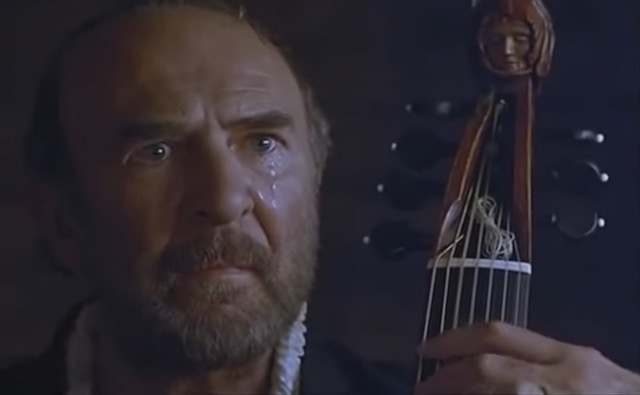
My husband and I recently watched a movie, Tous les Matins du Monde, about a 17th century musician who, when his wife died, refused to allow himself to believe or accept that she was gone. He isolated himself in a cabin in the woods and kept her alive through his music.
I wondered as the movie unfolded whether anyone really ever lets go of someone they love who has died. I wondered if we don’t all have our own version of the French composer’s music by which to maintain relationships with our eternal beloveds.
My husband has told me many times that, for him, getting married again, right away in fact, was one of the best ways he knew to honor his wife upon her death after almost 50 years of marriage.
In a way, I understand.
For the French musician, it was music—something he loved—that he used to keep hold of his deceased wife. For my husband, as ironic as it may seem, it was being married—something he loved—that allowed him to do the same thing.
I’ve always been aware of the strange dichotomy that being married to me was part of what keeps my husband’s late wife alive to him. But it was never more clear to me than it was last night as we watched the movie.
We are so harangued in our culture with the necessity of “letting go.” With people—professionals and otherwise—telling us we have to “move on,” and to “face reality” and to otherwise “bury the dead.”
We go along with them and with all that they say. We actually say it ourselves to others.
But do we really, in full honesty actually do it?
One thing is that the French musician in the movie knew what he was doing. He knew he was using music as a means by which to maintain his relationship with his wife.
To him, it was simply the most sensible and most honest way to respond to something that was untenable.
Letting go of his wife never occurred to him. She was just, more or less, asleep in the next room, despite the fact that “the sheets remained cold without her.”
For me, living 400 years later, when sensibilities and cultures have changed, the behavior of the French musician seemed strange or even slightly mad. For me, as well as for many of us, what he did then just isn’t done today.
Or is it?
When I think about my own husband and how he himself has arranged things so that he doesn’t have to really let go of someone he loves by—cleverly—marrying someone else, I get it.
I get that the French musician kept his wife alive through the music he loved and that my husband keeps his wife alive through the woman and the life he now loves.
The containers—marriage and music—are different but the treasure inside is the same.
I myself haven’t lost a spouse, life partner or chosen loved one. I have however lost my parents and while my father may be gone in the physical form, he definitely is not gone altogether. I think about him a lot. I remember him a lot. I talk to him and, like the French musician, I write about him.
Writing is the container in which I keep him alive.
I guess that’s my point. In fact, I’m thinking that everybody does that in one way or another and that, in the end, there really is no “letting go.”
We all just have different containers in which we keep the treasure inside alive.
Author: Carmelene Siani
Image: YouTube Still
Editor: Travis May











Read 13 comments and reply